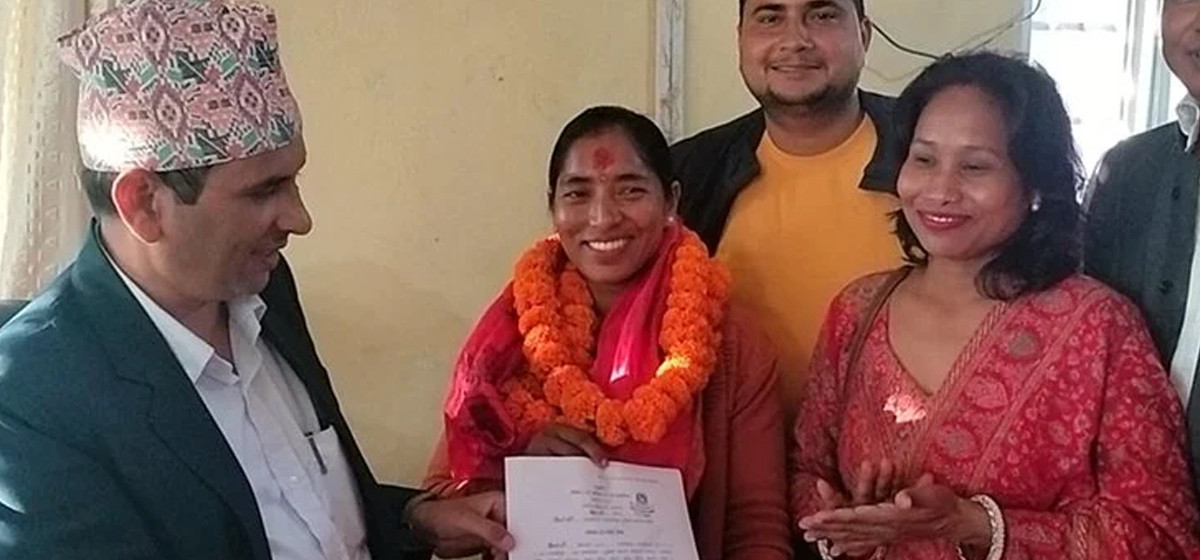China fuel won’t foster environment for industries to reopen: Industrialists
KATHMANDU, Oct 30: Unrest in the Tarai for the past two and a half months coupled with an Indian blockade since over a month have pushed Nepal’s economy to the brink of collapse, industrialists and private sector leaders said.
Almost all industries have shut down either due to shortage of raw materials or the inability of staff and workers to get to their workplaces for lack of transport. The transport sector has already suffered losses worth billions as a direct impact of the fuel scarcity. Dinesh Bhandari, chairman of the Federation of Nepalese National Transport Entrepreneurs, informed that around 80 percent of vehicles are off the roads and around 900,000 transport sector workers have remained idle.
Likewise, the tourism sector, already hit hard by the earthquake and was just recuperating, has again foundered because of the Tarai unrest and the Indian blockade. New bookings have largely dropped and hopes of a recovery have been dealt another blow, according tourism entrepreneurs. “The number of foreign tourists visiting the country is likely to see a decline by half -- to around 400,000 in 2015 compared to 800,000 last year,” said Binayak Shah, secretary general of the Hotel Association of Nepal (HAN). They also say that five-star hotel occupancy is below 30 percent in the current tourist season.
Imported goods of around 150,000 tons remain stuck at Birgunj dry port for lack of transport. Importers allege that the government has not been serious enough about arranging transportion for the goods. The number of containers and trucks stuck on the Indian side of the border is huge. Importers said they have stopped placing orders with their suppliers.
Failure to call blockade a blockade caused poll defeat: Dr Koir...

The Tarai unrest over the past two and half months has pushed the national unemployment figure to astronomical levels, according to observers. The private sector was hopeful of some headway in talks with the agitating protestors by the time of Dashain but there has not been any progress so far. “We were waiting in the hope that the government was doing its homework to reopen the customs points but the talks have not seen any progress,” said Pashupati Murarka, president of Federation of Nepalese Chambers of Commerce and Industry. The government has so far held three rounds of talks with the agitating United Democratic Madhesi Front but the latter has shown little flexibility.
The private sector has also complained that the government, instead of working to have the blockade lifted, is going for “trivial issues” like importing petroleum from China. Chinese fuel may make life easier in Kathmandu but it won’t be of any help for the industries in the Tarai, said Murarka. The Tarai is home to Nepal’s major industrial corridors.
The blow to the economy will be huge in monetary terms and the economy is likely to contract more than the projected 6 percent. The World Bank, in its latest report, has forecast that growth for this year will be a mere 3.4 percent due to the ongoing political turmoil.
Hari Bhakta Sharma, senior vice-president of Confederation of Nepalese Industries, said that it’s hard to quantify the economic loss but almost 95 percent of industrial units have shut down due to the fuel shortage and the resulting lack of raw materials.
Sharma added, “The government and the parties are still busy over trivial matters while ignoring the important problem.”
Except for holding minor discussions, the government has not bothered to consult the private sector over the current crisis, Sharma said.
FNCCI’s Murarka said that revenue secretary Rajan Khanal had invited him for discussions about releasing goods from Birgunj dry port, but no other government officials had done so to date.
“We met Prime Minister K P Sharma Oli but did not find him serious enough about resolving the problems,” added Murarka.
Talking to Republica, revenue secretary Khanal said that attempts at reopening the dry ports are ongoing but did not elaborate. The government’s revenue collection is short by Rs 21 billion in the first three months of the fiscal year, that is by October 17. Officials at the Ministry of Finance estimate that revenue collection will fall short by Rs 46 billion in the first four months of the fiscal year -- by November 16 -- if the current situation persists. The government had aimed to collect Rs 130 billion in the four months. Revenue collection is now at around Rs 250 million per day against the daily average of Rs 570 million in normal times.
Failure to spend the government’s development budget will also slacken demand in the market and discourage private sector investment. This will result in low growth in the economy. All development work including roads and hydropower projects have ground to a halt due to lack of construction materials and the fuel shortage. Hydropower developers say that contractors have applied for force majeure protection, citing the blockade, and this will cause delays in revenue generation and also affect their income.
Bikash Bista, director general of Central Bureau of Statistics, estimates that the effect of the blockade is at least close to the economic impact of the earthquake as it is more pervasive and lasting.
“Unlilke the earthquake, the unrest and blockade have hit productive sectors,” added Bista. He also said that the damage caused by the earthquake was physically more visible but the effects of the blockade are more pervasive.
“More days of blockade and unrest will badly hit the economy and I think we will have to examine this,” added Bista. Damage from the quake was assessed at Rs 700 billion under the Post Disaster Needs Assessment.

































